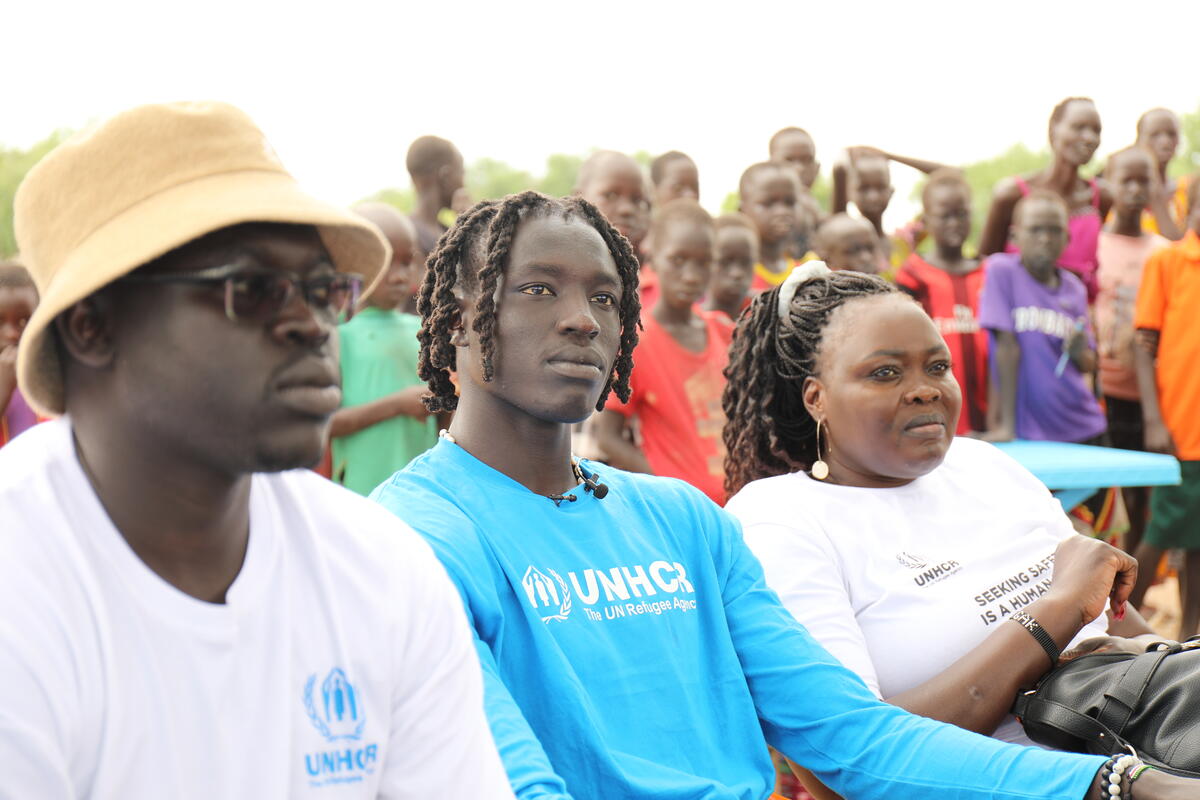Looting, empty villages found in rebel-controlled region of Central African Republic
Looting, empty villages found in rebel-controlled region of Central African Republic

GENEVA, February 12 (UNHCR) - A humanitarian assessment mission to an area of the Central African Republic seized by a rebel coalition in December has found abandoned villages and evidence of widespread looting.
The joint mission by UNHCR and Mercy Corps was made last week to Bambari, some 400 kilometres to the north east of the capital of the Central African Republic (CAR), Bangui. It discovered a swathe of villages along a 100 kilometre stretch of road between Grimari and Bambari that were almost completely deserted, with most residents hiding in the bush.
Speaking to journalists in Geneva Tuesday, UNHCR spokesperson Adrian Edwards said the mission was the first to the region since the Seleka rebel coalition took control of major cities in northern and central CAR in mid-December.
Villagers in the area told UNHCR staff that they had been subjected to violence and intimidation by armed groups in search of fuel, money and food. A village chief reported that he had been flogged earlier this month by men who were trying to get him to reveal where villagers were hiding their possessions.
Camp Pladama Ouaka, located ten kilometers from the town of Bambari, and home to some 2,000 Sudanese refugees, was also targeted, Edwards said. Community facilities, a distribution center, and the warehouse of a partner organization had all been looted.
UN offices in Bambari, including those of UNHCR and international non-governmental organizations, continue to be looted and ransacked. Humanitarian relief items, such as tarpaulins, blankets and mosquito nets, which the UN refugee was to distribute to refugees and internally displaced persons in the area, were among the stolen items.
A similar situation is emerging in the town of Kaga Bandoro. UNHCR estimates the cost of it lost aid supplies and damage to it premises in Kaga Bandoro and Bambari at more than US$ 300 thousand.
"Access for humanitarian workers to those in need in CAR remains very limited as a result of the lack of security guarantees,'' Edwards told reports. "In this context, it remains difficult to deliver assistance to refugees and internally displaced persons, or to conduct activities for their protection."
UNHCR is appealing to the government and the Seleka rebels to facilitate humanitarian access to populations in need, Edwards added.
Before the current crisis there were some 51,000 IDPs in CAR. More people have been displaced since and, despite security and access constraints, assessments are ongoing to find out how many they are. The country also hosts a refugee population of 17,000 mostly of Congolese origin.









